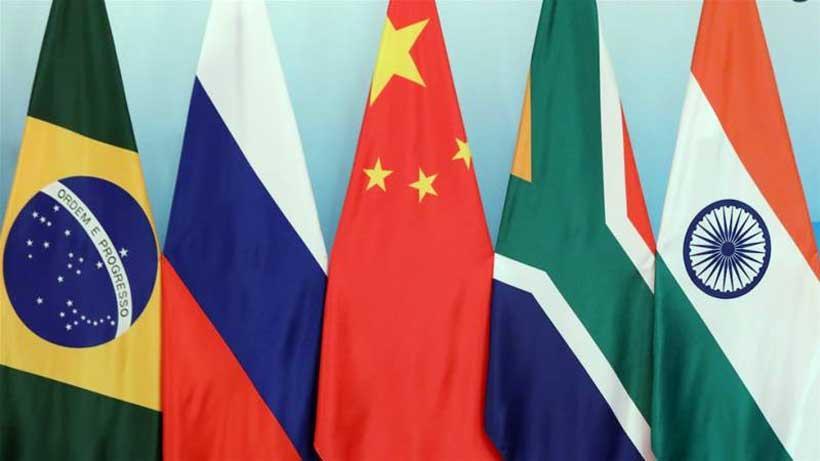Africa-Press – Eritrea. The inability of NATO-backed Ukraine to defeat the Kremlin’s forces and the commercial and economic dependency that Western countries have fallen into vis-à-vis China confirm bitter apprehensions about a rapid decline of the US-led Western bloc, writes Côme Carpentier de Gourdon, a member of the Editorial Board of the World Affairs Journal.
The next BRICS summit scheduled in South Africa in August is likely to announce various momentous decisions, such as the admission of new member-states, including Saudi Arabia, Indonesia, Argentina, and Egypt and set a timetable for the introduction of a new joint currency to replace the US Dollar in international trade between them.
The likelihood that this rival to the Greenback may come into being in the short or medium term has set alarm bells ringing in the financial citadels of the Western world and especially in the United States, already shaken by the parlous state of their economy and the declining status of a rapidly devaluing Dollar (in terms of purchasing power).
The economic threat posed by this future monetary vehicle combines with the challenge posed to American supremacy by Russia and China and incites Washington DC to use all its political, diplomatic, military and judicial arsenal in order to derail this process.
One cannot but view in that context Russian President Putin’s inculpation by the International Criminal Court, by a Prosecutor who appears to have been highly susceptible to pressure.
In line with this ‘pull all the stops’ strategy, the American government and its allies are now applying the greatest pressure on South Africa to arrest the Russian head of State if and when he comes to participate in the August BRICS summit.
Clearly, the intent is to prevent the gathering from fulfilling its agenda by embroiling its members in a legal controversy about the primacy of international law over the diplomatic immunity of heads of state in foreign countries.
The sabotage tactic can be effective if South Africa, the host state, faces damaging economic and diplomatic sanctions that might topple its fragile political edifice, given its ethnically divided society and an economy still under heavy ‘Western’ influence.
The South African spokesman has indeed recalled that, though foreign heads of state have diplomatic immunity, the latter does not supersede arrest warrants from a supra-national judicial authority although the ICC (to which Pretoria is a signatory) cannot compel a sovereign state to comply with its demands.
Similar pressure tactics and threats are being implemented by the G-7 Clan towards the G20 and the Shanghai Cooperation Organisation – both chaired by India this year – which the United States and its subalterns are holding hostage to the Ukrainian question.
There is a realisation in Western circles that Ukraine cannot win this war on the battlefield so that only a major geopolitical upset can turn the table on Russia. Humanitarian and other moral concerns are mere fig leaves over the naked resolve to maintain hegemony through the ‘rules-based order’ system.
It is enough to recall that a rapidly growing percentage of the world’s population is now under some kind of sanctions, most unilaterally decreed by the United States with the support of its allies, to realise that mankind is split between the Club of the sanctioning powers and the rest of the world, which can fall victims to these sanctions at the will of the US Congress and the White House.
India has had that experience in the last decades and faces it once again, in connection to its energy trade with Russia
India is being courted by the US while being harshly criticized in the globalist ‘legacy media’ on various grounds but in reality for professing constructive multi-alignment.
The recent offer from the US Congress of NATO-Plus status to New Delhi is predicated on India’s acceptance of the broader US agenda, against a promise of technology transfer and business incentives but it will necessarily entail the loss of strategic autonomy and independent decision-making.
It should be kept in mind that any country or personality, legal or physical, can always fall under the sway of US sanctions if it ceases to comply with the prescribed ‘rules-based code of behaviour’, all the more so if it contributes to any initiative regarded as an existential threat to the Superpower’s status. And the BRICS, at last potentially, matches that one-sided, self-serving definition of what goes against the global order.
moderndiplomacy
For More News And Analysis About Eritrea Follow Africa-Press







